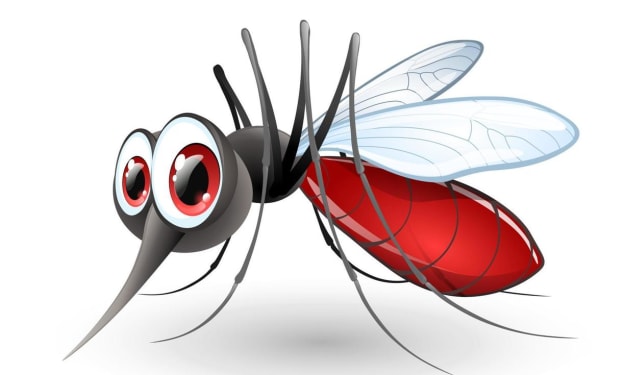Unlocking the Secrets to Luxurious Hair!
Understanding Hair Loss Causes, Effective Home Care, and Advanced Medical Solutions

Hair loss is a common concern that can occur gradually and take various forms, whether it’s patchy or affecting the entire scalp. On average, individuals lose approximately 100 hairs per day out of the roughly 100,000 hairs on their scalp. In this comprehensive guide, we will delve into the causes of hair loss, discuss home care tips, and explore medical solutions for regaining your luscious locks. As the best copywriter of all times, I’ll provide you with invaluable information, so let’s dive in!
Before continuing to read the article we would like to offer you a totally FREE E-Book about Hair Loss and how to stop it. Follow this link to get it!
Understanding the Causes of Hair Loss:
Heredity: Hair loss is often associated with aging and changes in hormone levels, particularly testosterone. Both men and women experience a gradual thinning of hair as they grow older. Male pattern baldness, a hereditary condition, affects a larger percentage of men compared to women. It can occur any time after puberty, with approximately 80% of men showing signs of this condition by the age of 70.
Physical or Emotional Stress: Intense physical or emotional stress can lead to a condition called telogen effluvium, causing the shedding of one-half to three-quarters of scalp hair. You may notice significant hair loss while shampooing, combing, or running your hands through your hair. Telogen effluvium is usually temporary, and hair shedding decreases over a period of 6 to 8 months. However, in some cases, it can become chronic.
Other Factors Contributing to Hair Loss:
In addition to hereditary and stress-related causes, there are various factors that can lead to hair loss in an unusual pattern. These include:
Alopecia areata, which results in bald patches on the scalp, beard, eyebrows, and eyelashes
Anemia
Autoimmune conditions such as lupus
Burns
Certain infectious diseases like syphilis
Excessive shampooing and blow-drying
Hormonal changes
Thyroid diseases
Nervous habits like hair pulling or scalp rubbing
Radiation therapy
Tinea capitis, commonly known as ringworm of the scalp
Tumors of the ovary or adrenal glands
Hairstyles that exert excessive tension on the hair follicles
Bacterial infections of the scalp
Home Care for Hair Loss:
Hair loss due to menopause or childbirth often resolves on its own within 6 months to 2 years. In cases where hair loss is a result of illness, radiation therapy, medication use, or other causes, no specific treatment is required. Hair typically regrows once the underlying condition resolves or the therapy is completed. During the regrowth period, you may choose to wear wigs, hats, or other coverings.
Disguising hair loss with hair weaves, hairpieces, or different hairstyles is a cost-effective and safe approach. However, it’s important not to suture (sew) hairpieces to the scalp to avoid potential scarring and infection.
When to Seek Medical Attention:
While most cases of hair loss do not require urgent medical attention, it’s essential to consult a healthcare professional if you experience:
Unusual pattern of hair loss
Rapid hair loss or early onset of hair loss, particularly in your teens or twenties
Pain or itching accompanying hair loss
Abnormalities such as redness, scaliness, or other skin conditions on the scalp
Development of acne, facial hair, or irregular menstrual cycles
Male pattern baldness in women
Bald spots on the beard or eyebrows
Weight gain, muscle weakness, intolerance to cold temperatures, or fatigue
Presence of scalp infections
What to Expect During Your Medical Visit:
A comprehensive medical history and examination of your hair and scalp will typically be conducted to diagnose the cause of your hair loss. During your consultation, your healthcare provider may inquire about:
Specific symptoms related to your hair loss, including patterns and any hair loss among family members
Hair care routine, such as frequency of shampooing, blow-drying, and product usage
Emotional well-being and levels of physical or emotional stress
Dietary changes you may have made recently
Previous illnesses, surgeries, or high fever episodes
While rare, additional tests that may be performed include:
Blood tests to rule out underlying diseases
Microscopic examination of plucked hair
Skin biopsy of the scalp
Depending on the diagnosis, your healthcare provider may recommend an antifungal shampoo and oral medication if ringworm of the scalp is detected. They may also suggest the use of a solution like Minoxidil, applied to the scalp to stimulate hair growth. In some cases, hormone-based medications may be prescribed to decrease hair loss and promote regrowth. For men, drugs such as finasteride and dutasteride can be taken to reduce hair loss and stimulate new hair growth.
If a vitamin deficiency is identified, your healthcare provider may advise taking a supplement to address the deficiency. In more advanced cases, a hair transplant procedure might be recommended.
Embrace the Journey to Beautiful Hair:
Remember, hair loss is a common experience that can be managed and treated. Whether it’s through simple home care practices or seeking medical solutions, there are options available to regain your confidence and embrace your hair journey. Take the necessary steps to address your concerns, and remember that you are not alone — many others have faced similar challenges.
If you find solace in sharing your experience, consider joining support groups or engaging in online forums where you can connect with individuals who are going through similar situations. Your emotional well-being is just as important as your physical health, so don’t hesitate to seek counseling if hair loss is causing distress.
Stay positive, and remember that hair loss does not define your worth. Embrace the beauty that lies within you, and let your inner confidence shine through.
GET YOUR FREE E-BOOK ON HAIR LOSS NOW: CLICK HERE






Comments
There are no comments for this story
Be the first to respond and start the conversation.